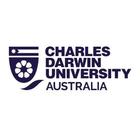Master of Aeromedical Retrieval
Master of Aeromedical Retrieval
The Master of Aeromedical Retrieval is an innovative course designed for healthcare professionals seeking to extend their knowledge of aeromedical retrieval and develop foundational research skills. Developed in partnership with The National Critical Care Trauma Response Centre, CareFlight (NT) and The Royal Flying Doctor Services (SA and Central Operations), this…
Categories
COURSE DESCRIPTION
The Master of Aeromedical Retrieval is an innovative course designed for healthcare professionals seeking to extend their knowledge of aeromedical retrieval and develop foundational research skills. Developed in partnership with The National Critical Care Trauma Response Centre, CareFlight (NT) and The Royal Flying Doctor Services (SA and Central Operations), this is a practical and industry-relevant course for nurses, midwives, physicians and other health professionals. The Master of Aeromedical Retrieval will build on fundamental principles and your clinical practice, equipping you to provide safe clinical care in the air in national and international situations. You will study mostly online and complete on-campus intensives. This flexible course addresses delivery processes, critical reflection on aeromedical retrieval practice, and the effects of policy and politics on health care provision, access and individual agency. The Master in Aeromedical Retrieval will analyse the essentials of retrieval from neonatal care to adult care, including obstetrics. An often-overlooked component of aeromedical retrieval is logistics. This course is an opportunity to critically reflect on both domestic and international logistics considerations. This course, underpinned by cultural safety framework principles of safety and competence, will expand on your current or recent experience within the health service. During the course you will undertake education and assessments that have a direct application to your current or future professional practice and context. The course is external with one residential week hosted in Darwin for two of the core units – HEA581 Essential Skills in Adult and Obstetric Retrieval and HEA582 Essential Skills in Neonatal and Paediatric Retrieval.
REQUIREMENTS
Current registration with the Australian Health Practitioner Agency (AHPRA) in medicine, nursing, paramedicine or midwifery.
Applicants with AHPRA registration not listed above will be considered on a case-by-case basis.
It is expected applicants have recent work experience in a health setting.
- IELTS Academic Module: A minimum overall score of 6.5 with no band less than 6.0.
- Cambridge Advanced English (CAE): A minimum overall score of 176, with no skill below 169.
- Common European Framework Certificate of English Proficiency: A minimum overall grade of C1, valid for three years from the date of the test to the date of commencement at CDU.
- Pearson Test of English (PTE) Academic module: A minimum overall score of 58 with no score lower than 50.
- TOEFL Internet-based Test (iBT): A minimum overall score of 79 with a minimum writing score of 21.
EDUCATIONAL INSTITUTION
Charles Darwin University (CDU) is a truly unique institution, headquartered in the Northern Territory and spanning the whole country with delivery sites in cities like Brisbane, Darwin, Perth, Melbourne and Sydney and regional hubs such as Alice Springs, Katherine and Palmerston. The university’s multi-campus, virtual and online expertise, course profiles, delivery methods, research activities and operation, result from a commitment to the regions in which it operates. At CDU, international students will benefit from the university’s relatively smaller class sizes and a low student-to-teacher ratio that is in the range of one teacher to every 15-20 students. International students have 11 campuses and centres located around Australia where they could be studying, from tropical Darwin, the outback of Alice Springs or in one of Australia’s more famous cities, Sydney. CDU is ranked number four among Australian universities for undergraduate employment outcomes.

